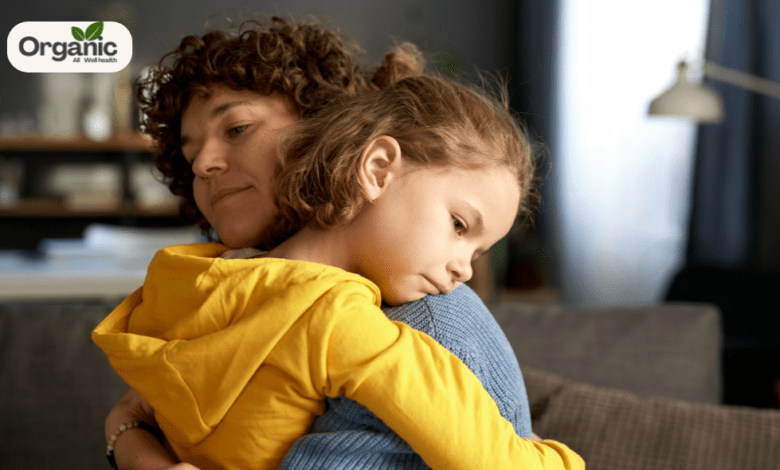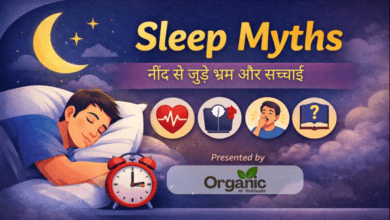Codependent Relationships and Recovery – Complete Guide

Codependent relationships and recovery are topics that many people grapple with, often without realizing the impact such dynamics have on their emotional well-being. These relationships typically involve one partner—the “giver” or caretaker—who consistently prioritizes the other’s needs over their own. Meanwhile, the “taker” benefits from this imbalance, knowingly or unknowingly contributing to dysfunction. In this comprehensive guide from the allwellhealthorganic team, we explore what codependent relationships are, how they affect your mental health, and effective recovery strategies to help you or someone you care about regain balance and self-worth.
What Are Codependent Relationships?
Codependent relationships and recovery begin with understanding the very foundation of codependency. A codependent relationship is marked by an unhealthy pattern of behavior where one partner constantly sacrifices their own needs, desires, and even identity to cater to another. This dynamic often leaves both parties unfulfilled and trapped in cycles that can be hard to break.
The Caregiver and the Taker Dynamic
In most codependent relationships:
- The caregiver (or giver) focuses entirely on the other’s happiness and stability, often at their own expense.
- The taker relies heavily on the caregiver, sometimes exploiting this support, whether intentionally or unintentionally.
This imbalance fosters dysfunction, making codependent relationships and recovery a vital topic for emotional health.
Signs You May Be the Caregiver in a Codependent Relationship
Recognizing these signs is the first step towards codependent relationships and recovery:
1. Neglecting Your Own Needs
Caregivers often struggle to find time for their own physical, emotional, or spiritual well-being. Their identity becomes intertwined with fulfilling their partner’s needs.
2. Guilt Around Personal Space or Hobbies
Many caregivers feel guilty about spending time with friends, enjoying hobbies, or pursuing personal goals. This guilt keeps them tethered to the taker’s needs 24/7.
3. A Strong Desire to Fix or Control the Partner
In their quest to help, caregivers often feel responsible for solving the taker’s problems, including managing their emotions or decisions.
4. Dependence on the Taker’s Approval
Your mood and sense of worth may rely heavily on the other person’s validation.
5. Confusion About Your Own Feelings
Because the caregiver’s focus is external, they may struggle to articulate or even recognize their own emotions.
Signs You May Be the Taker in a Codependent Relationship
Being the taker doesn’t always mean malicious intent. Understanding your role is key to codependent relationships and recovery.
1. Blaming Your Partner
If you habitually blame your partner for issues without taking accountability, this may be a sign of codependency.
2. Over-Reliance on Unconditional Support
If you believe your partner will stay no matter what, you might be leaning too heavily on their unconditional support, leading to imbalance.
3. Your Needs Are Met Without Asking
When a partner anticipates and meets your needs to the point that they ignore their own, codependency may be at play.
4. Emotional Outbursts Tied to Stress or Substance Use
Substance misuse or mental health struggles that result in lashing out could indicate a codependent dynamic where your partner absorbs the emotional fallout.
Common Examples of Codependent Relationships
Codependency isn’t limited to romantic partnerships. Codependent relationships and recovery can apply across many types of relationships:
Parent-Child Relationships
A child may learn to suppress their feelings to appease a parent with emotional volatility or substance misuse.
Family Members
Someone caring for a chronically ill family member might lose sight of their own health and needs.
Romantic Partners
One partner may define their worth by how well they support the other, even at great personal cost.
Friendships and Work Relationships
Friends or colleagues may develop codependent bonds where one person constantly sacrifices for the other.
The allwellhealthorganic team highlights that these dynamics can form in any close relationship when boundaries are blurred and self-care is neglected.
How Codependent Relationships Impact Mental Health
The mental toll of codependency can be significant. Anyone exploring codependent relationships and recovery should be aware of these common emotional effects:
- Loss of self-confidence and trust in oneself
- Difficulty establishing boundaries
- Struggles with communication
- Fear of change and conflict
- Overwhelming guilt, anxiety, or anger
- A pattern of dishonesty to avoid confrontation
- Difficulty making independent decisions
Research has shown that individuals in codependent relationships may harshly judge their partner’s coping skills and see their relationship as more problematic than it is. This further complicates recovery.
Codependent Relationships and Recovery: Steps to Heal
Healing from codependency is possible. Recovery requires effort from both partners and often involves external support.
1. Recognize and Acknowledge the Problem
Awareness is the first and most important step. Without recognizing the codependent dynamic, it’s difficult to make meaningful changes.
2. Seek Professional Help
Therapists, counselors, and support groups offer valuable guidance in unpacking the layers of codependency. Recovery plans may include:
- Cognitive-behavioral therapy
- Couples counseling
- Group therapy for codependency
3. Set and Enforce Healthy Boundaries
Boundaries protect emotional well-being and promote mutual respect. In codependent relationships and recovery, learning to say “no” is crucial.
4. Prioritize Self-Care
Recovery means rediscovering hobbies, friendships, and personal goals that have been sidelined. This helps rebuild self-identity.
5. Practice Open Communication
Healthy relationships thrive on honesty and emotional safety. Recovery involves learning to express needs and feelings clearly and respectfully
Supporting Someone in a Codependent Relationship
If someone you care about is stuck in codependency:
- Approach them gently without judgment.
- Offer resources like therapy or educational material.
- Remind them they have your support regardless of their decisions.
For those concerned about takers in codependent relationships, offering perspective and non-judgmental dialogue can encourage self-awareness and growth.
Safely Leaving a Codependent Relationship
Not all codependent relationships can or should be saved, especially if emotional abuse is involved. If safety is a concern:
- Contact support services like the National Domestic Violence Hotline.
- Develop an exit plan with the help of professionals.
- Lean on trusted friends, family, or support groups.
Recovery sometimes means moving on and rebuilding independently.
The Role of Professional Help in Recovery
Professional support is invaluable in codependent relationships and recovery. Therapists can:
- Help both parties identify unhealthy patterns.
- Guide the couple or individuals in reshaping the relationship dynamic.
- Offer coping strategies for healthier interactions.
Final Thoughts: A Journey Toward Healthier Relationships
Codependent relationships and recovery are challenging but achievable goals. Whether you’re a caregiver, a taker, or someone observing from the outside, it’s possible to break free from these patterns and cultivate relationships built on mutual respect, balance, and care.
The Takeaway
Codependent relationships can deeply affect mental and emotional well-being. Recovery is possible through awareness, professional help, and intentional change. By understanding the signs and taking steps towards healthier dynamics, individuals and couples can reclaim their lives and happiness.



